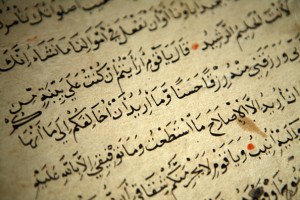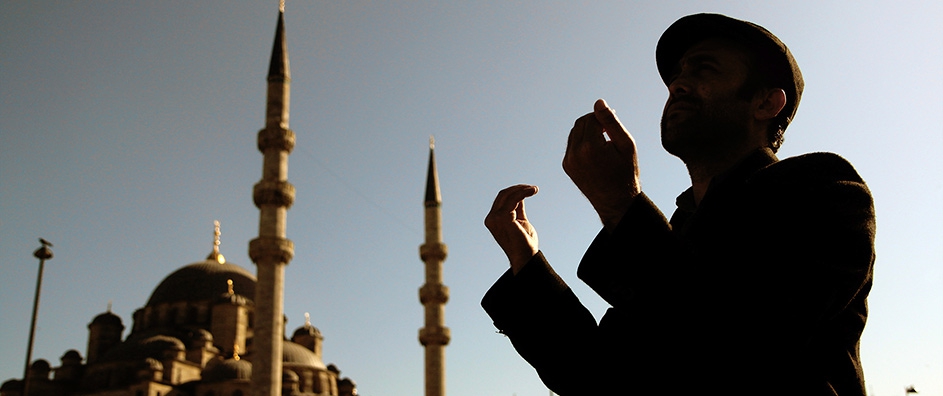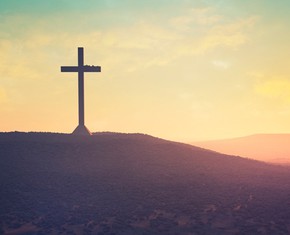The views expressed in our content reflect individual perspectives and do not represent the authoritative views of the Baha'i Faith.
So far in this series of articles we’ve seen the Qur’anic basis for affirming divine revelations after Muhammad, “the Seal of the Prophets.”
Yet the Qur’an is not the only source of Islamic teachings. As the revealed Word of God, it is of unrivaled importance. Nevertheless, Muslims supplement their understanding of the Qur’an with traditions (called hadiths) of the things Muhammad did and said. Shi‘ites also revere the traditions of Muhammad’s successors, the twelve Imams.
Unlike the Qur’an, the traditions are not immune from corruption—many Islamic scholars consider the majority of existing traditions doubtful or inauthentic. Even those that pass the initial litmus of credibility must be measured against the Qur’an itself, and no tradition that contradicts the Qur’an can be accepted: “Any hadith that does not agree with the Qur’an is a lying embellishment” – Usul Al-Kafi vol. 1, Hadith 203.
Several influential hadiths or traditions record Muhammad saying, “There is no prophet after me.” If this means that there can never be another revelation from God, these traditions contradict what we have seen in the Qur’an, and must be rejected—or at least understood in another way.
“…The Messenger of God (peace and blessings of God be upon him) said, ‘The Hour will not be established until the tribes of my community join the polytheists and worship idols. In my community there will be thirty liars, each of them claiming to be a prophet—but I am the Seal of the Prophets; there is no prophet after me.’” – Jami` al-Tirmidhi, Hadith 2219.
“…The Messenger of God said, ‘If there were to be a prophet after me, he would be ‘Umar ibn al-Khattab [a companion of the Prophet and the second Caliph].’” – Tirmidhi, Hadith 3686.
Finally there is the famous ‘Hadith of Manzila’, showing the high position Muhammad accorded his son-in-law ‘Ali:
“…the Prophet said to ‘Ali, ‘You are to me in the position (manzila) of Aaron to Moses, except that there is no prophet after me.’” – Tirmidhi, Hadith 3751.
At first glance, these traditions seem to nullify the Qur’an’s warning to heed future messengers (Qur’an 7:35). Isn’t their wording direct and unequivocal—“There will be no prophet after me,” full stop?
Not necessarily—context is everything. For example, if a college student is asked, “What class do you have after this?” and replies, “This is my last class,” in context this means it is the student’s last class of the day—not that it is the last class ever and the student is dropping out of college.
The context of these hadiths favors a similar, immediate application. Each of them addresses the nature of succession after the Prophet within the Islamic community. These hadiths tell contemporaries of Muhammad—‘Ali, ‘Umar—that the status of any prophet after Muhammad is denied. We can find the key to understanding these traditions in yet another hadith:
“…the Prophet said, ‘The children of Israel were governed by prophets—whenever a prophet died, another prophet took his place. There will be no prophet after me, but there will be Caliphs (successors, stewards) who will increase in number.’” – Sahih al-Bukhari vol. 4, Hadith 661.

The religions of Jesus, Moses, and Abraham all contained many secondary prophets—usually relatives or descendants of the Prophet-Founder. Isaac was the son of Abraham, Aaron was the brother of Moses. Muhammad’s insistence that “there is no prophet after me” meant to dissuade the Muslims from looking for a new leader to take up the mantle of prophethood after his death. In other words, “The Seal of the Prophets” clearly means Muhammad ruled out a continuous line of prophets within Islam.
This bore repeated emphasis because it departed from the pattern of Judaism and Christianity, and contravened the hopes of the Prophet himself.
Muhammad had a son, Ibrahim, who died in infancy. Upon his death, the grief-stricken Messenger of God is reported to have said, “If he had lived, he would have been a Siddiq (righteous one) and a Prophet” (Sunan ibn Majah, Vol. 6, Hadith 1578). Muhammad had already lost two other sons in infancy—Qasim and ‘Abdullah. The Qur’an alludes to this tragic history in the first line of Sura 33:40:
Muhammad is not the father of any one of your men, but the Messenger of God, and the Seal of the Prophets; God has knowledge of everything.
As “Seal of the Prophets,” Muhammad did indeed confirm the prophets before him. In light of the history of Islam, this title carries the added meaning of his uniqueness within his own dispensation. He did not claim to be the last bearer of God’s message for all time, but the last until the next great Messenger—the event the Qur’an describes as “the Hour” and “the Meeting with God.”
Baha’u’llah, too, knew the heartbreak of losing a dear child—in 1870 his son Mirza Mihdi, “the Most Pure Branch,” fell to his death while immersed in prayer. Although Baha’u’llah chose one of his surviving sons, Abdu’l-Baha, to shepherd the Baha’i community after his passing, the Baha’i Faith, like Islam, does not regard the successors of its Founder as prophets.
With Muhammad, the era of religions guided after the Founder by secondary, supporting prophets thus came to an end. The original message of each of these Prophets and Founders stands alone, needing only authoritative interpretation, until the coming of the next great revelation from God.
In the final part of this series, we will delve into a different aspect of “Seal of the Prophets”—one that relates to the new religious cycle the Baha’i Faith has ushered in.
You May Also Like
Comments

















Perhaps it's because a data base stores their articles and David airs the articles in question some considerable time after they've been composed???
David has stated that he rarely responds to his readers' questions and comments because of his work load both at university and in composing stories for Baha'iTeachings.Org. etc. Perhaps if he composed fewer articles and concentrated a ...little more on interactivity and consultation Baha'iTeachings.Org might surpass even its present luster as far as attaining wisdom and understanding are concerned
Given that Baha'u'llah establishes consultation as one of the fundamental principles of His Faith; describes it as ‘the lamp of guidance,’ as ‘the bestower of understanding,’ and as one of the two ‘luminaries’ of the ‘heaven of Divine wisdom.’ consider providing guidelines vis-a-vis the charter or modus operandi of Baha'iTeachings.Org because without those and in the wake of insufficient consultation mighty blows might be dealt to understanding and wisdom. (B T W the two luminaries are 'consultation' and 'compassion'. Perhaps He lists 'consultation' first as it trumps even 'compassion'. I mean, compassion might be wasted if consultation precedes it not.
Study of Islam and its link with the Baha'i Faith is not my forte though I know that the Guardian urged Baha'is to take it on board.
'Naught will remain of Islam save the noble Koran' is a shocking position I once heard a Baha'i speaker utter without providing sources and without further discussion during his presentation. Subsequently I've heard that iconoclastic and inflammatory statement attributed to Abdu'l-Baha but once again without sources. The dangers of interpreting and a lack of consultation are crystal clear. Who knows what the Master actually said about the future of Islam, please?
Baha'i love
Paul
Maybe these Hadiths and the Guardian's authoritative words on the subject are even more scary than I'd first surmised vis-a-vis the Koran and Islam. I can see that the history and importance of Islam is ginormous and its immediate future is dreadful and awful, no less terrifying than the Guardian's prophecy for the world comparing the devastation of WW2 to a foretaste:
"It is this same cancerous materialism, born originally in Europe, carried to excess in the North American continent, contaminating the Asiatic peoples and nations, spreading its ominous tentacles to the borders of Africa, and now ...invading its very heart, which Bahá’u’lláh in unequivocal and emphatic language denounced in His Writings, comparing it to a devouring flame and regarding it as the chief factor in precipitating the dire ordeals and world-shaking crises which must necessarily involve the burning of cities and the spread of terror and consternation in the hearts of men. Indeed a foretaste of the devastation which this consuming fire will wreak upon the world, and with which it will lay waste the cities of the nations participating in this tragic world engulfing contest has been afforded by the last World War, marking the second stage in the global havoc which humanity, forgetful of its God and heedless of the clear warnings uttered by His appointed Messenger for this day, must, alas, inevitably experience.”
Shoghi Effendi, "Citadel of Faith" 1954, p124
As the essence of wisdom is the fear of God, Bahá’í reviews, magazines, blogs, teaching sites etc. are charged primarily i m o to ascertain the truth and importance of a subject, not its perceived popularity in the eyes of their readers or counterparts; stern warnings and frightening prophecies penned by the central Figures and clarified by the Guardain in clear and modern language were composed for guidance sake, not as ‘doom and gloom’ matters of negativity to be ostrich like ignored.
I seem to have bitten off more than I can chew as an author as I'm my own editor and publicist etc. Sounds like that joke about a defendant who engages himself as an attorney! Inshallah, thanks to the computer skills of a dear friend "Proof - for the lay person" and "From Babel to Baha'i" will appear mid year or before in E-publisher should we live so long in these perilous days
Allah'u'abha dear Dan
There are some hadiths close in meaning to this idea, such as:
"The Apostle of God said: `There will come a time for my people when there will remain nothing of the Qur'an except its outward form and nothing of Islam except its name and they will call themselves by this name even though they are the people furthest from it. The mosques will be full of people but they will be empty of right guidance. The religious leaders (Fuqaha) of that day will be the most evil religious leaders under the heavens; sedition and dissension will go ...out from them and to them will it return.'"
- Ibn Babuya, Thawab ul-A'mal
- Also, in Al-Bihar, by Al-Majlisi, Vol 13, Page 155
- Also, in Kanz Al-amal #766
(See: http://www.bci.org/islam-bahai/BestNations_3.htm)
The following are from Sahih al-Bukhari, a compilation Sunnis generally regard as authentic:
Volume 9, Book 88, Number 184:
Narrated 'Abdullah and Abu Musa:
The Prophet said, "Near the establishment of the Hour there will be days during which Religious ignorance will spread, knowledge will be taken away (vanish) and there will be much Al-Harj, and Al-Harj means killing."
Volume 9, Book 84, Number 68:
Narrated Yusair bin 'Amr:
I asked Sahl bin Hunaif, "Did you hear the Prophet saying anything about Al-Khawarij?” He said, "I heard him saying while pointing his hand towards Iraq. "There will appear in it (i.e, Iraq) some people who will recite the Quran but it will not go beyond their throats, and they will go out from (leave) Islam as an arrow darts through the game's body.' "
(See: http://www.usc.edu/org/cmje/religious-texts/hadith/bukhari/084-sbt.php)
"Al-Khawarij" were an early faction who followed Imam ‘Ali, but turned against him in the course of an arbitration with Mu‘awiya ibn Abi Sufyan. They became infamous for declaring fellow Muslims as disbelievers and murdering them. Imam ‘Ali Himself was assassinated by a kharijite, ibn Muljam, while doing prayer. The hadith indicates that these types would become prominent in the later days of Islam. Certainly it is true of them that the Qur’an "will not go beyond their throats," or, as one might say, "in one ear, and out the other" .
Every religion seems to drift from the original message over time; the above mentioned hadiths may simply reflect this. But, from what I understand, as Baha'is we cannot assume that a hadith is correct unless it is confirmed in the Writings.
Although not part of the Writings themselves, there is a statement by the Guardian,
"Islam, at once the progenitor and persecutor of the Faith of Bahá'u'lláh, is, if we read aright the signs of the times, only beginning to sustain the impact of this invincible and triumphant Faith. We need only recall the nineteen hundred years of abject misery and dispersion which they, who only for the short space of three years persecuted the Son of God, have had to endure, and are still enduring. We may well ask ourselves, with mingled feelings of dread and awe, how severe must be the tribulations of those who, during no less than fifty years, have, 'at every moment tormented with a fresh torment' Him Who is the Father, and who have, in addition, made His Herald--Himself a Manifestation of God--to quaff, in such tragic circumstances, the cup of martyrdom.”
-The Promised Day is Come (para. 249)
God willing, will let you know when I find something else. Thank you for sharing a bit about your experience in Teheran. Islam imbues the lives of whole societies in a way hard for many who live in secular societies to grasp.
Thanks too for referencing me in your work (after Dr. Troxel no less!) Where/how will your books be available?
Allahu Abha,
Dan
Dear Dan
Many thanks for your input, it's helpful.
During my visit to Teheran a few months back I couldn't fail but notice that most people there seem to take their religion seriously; it reminded me of 1950s Australia when one often noticed clerics getting out and about in religious attire
Study of the noble Koran is a subject I'd certainly like to undertake but I'm in the process of composing concurrently two new books on other subjects. One of which "PROOF - for the lay person" references your work because in it I touch on Islam: ...
Koran 21 (The Prophets) addresses in detail the validity of the Prophets aforetime, the perilous notion of gods, whether of polytheism or of mammon, and the reaping of the whirlwind by the wicked and the heedless. Dr. Duane Troxel’s scholarship defines the Bahá’í position pertaining to the noble Koran: See also: Dan Gebhardt’s three part thesis:
When Dr Troxel was Director of Landegg Academy he favorably commented on an earlier work composed by this amateur which moved me to research his oeuvre wherein of course I found a deep knowledge of Islam. To the best of my knowledge he too makes no reference to 'nothing remaining of Islam save the noble Koran'. Perhaps that prophecy is entirely apocryphal???
Baha'i love
Paul
Well said! Coming from this background, and with essays of my own on proofs of the existence of the principle of successive revelation in both the Qur'an and Hdith, I wish to humbly make the following comment.
1. Hadith is the oral tradition of the Prophet, while Sunna is about following what he did. As you are certainly aware, the difference between Shi'ite and Sunni Islam is, in addition to a dispute on Muhammad's succession, that the former follow both Hadith and Sunna, while the latter are directed by the Imams who are from the offspring of ...Fatimih and Ali, and do have their own version of Hadith.
2. The Hadith regarding the succession of Muhammad do not contradict with the Qur'an. In fact, the Hadith is more precise and informative when it comes to the next Revelation, even mentioning the place (Akka), and the fact that the disciples of the Mehdi (the Bab) will be Persians. Many of the Hadith tell of the pathetic end of Islam, when time for the next Revelation falls.
3. There is also an allusion in the Qur'an to world unity.
Last, I wonder if you are aware of a treatise by Mr. Ali Nakhjavani on the whole subject. I found it when I first came here to Uganda in 1989. It quotes extensively from both Qur'an and Hadith, and the Arabic origanl accompanies the English quotes.
Thanks for your fine scholastic work!
Glorified art Thou, O Lord my God! I beseech Thee by Thy Chosen Ones, and by the Bearers of Thy Trust, and by Him Whom Thou hast ordained to be the SEAL OF THY PROPHETS AND OF THY MESSENGERS, to let Thy remembrance be my companion, and Thy love my aim, and Thy face my goal, and Thy name my lamp, and ...Thy wish my desire, and Thy pleasure my delight.
http://bahai-library.com/books/announcement.quran/
When the SUN shines quench the lamps!
A great article exploring the possibilities of imminent arrival of yet another Prophet. What the people need now is the truth of self realization and the Prophet lies with in them and every hour is "the hour" to "meet the GOD with in", we just have to make that choice to realize the truth and the truth will be revealed.
Love,
Sridattadev.